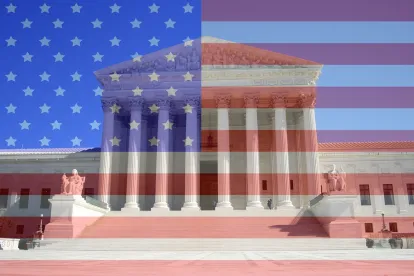The U.S. Supreme Court has agreed to consider whether the Federal Arbitration Act (FAA) requires enforcement of a bilateral arbitration agreement mandating that claims be brought on an individual basis and that employees may not bring representative claims, including claims under the California Private Attorneys General Act (PAGA). Viking River Cruises, Inc. v. Moriana, Docket No. 20-1573.
Background
Petitioner Viking River Cruises, Inc. offers and sells voyages on a leading ocean and river cruise line. Respondent Angie Moriana worked for Viking as a sales representative in California from approximately May 31, 2016, to June 15, 2017.
Before beginning her employment, Moriana agreed to resolve all future employment-related disputes with Viking through bilateral arbitration. She entered into an arbitration agreement that applied to “any dispute arising out of or relating to [her] employment.” The agreement made clear that, subject to enumerated exceptions (which were not implicated in the case), “arbitration [would] replace going before … a court for a judge or jury trial.”
Further, under the heading, “How Arbitration Proceedings Are Conducted,” the agreement provided that, in arbitration, the parties would use individual, rather than class, collective, representative, or private attorney general action procedures. The agreement stated:
There will be no right or authority for any dispute to be brought, heard or arbitrated as a class, collective, representative or private attorney general action, or as a member in any purported class, collective, representative or private attorney general proceeding, including, without limitation, uncertified class actions.
Lastly, the agreement allowed Moriana to opt-out of the class, collective, and representative action waiver. It stated, “You may opt-out of the Class Action Waiver by clicking this box [ ] before you click below.” Moriana chose not to opt out and left the box unchecked.
After her employment ended, Moriana filed a representative action against Viking, seeking civil penalties under PAGA. Under PAGA, an aggrieved employee may bring a civil action on behalf of themselves, other employees, and the State of California to recover civil penalties for Labor Code violations. Of the civil penalties recovered, 75 percent goes to the state Labor and Workforce Development Agency, leaving the remaining 25 percent for the aggrieved employees. In her PAGA sole claim, Moriana alleged underlying violations of the Labor Code and sought relief on behalf of hundreds of other “aggrieved current and former employees.”
Citing the parties’ arbitration agreement and the U.S. Supreme Court’s decision in Epic Systems v. Lewis, 138 S. Ct. 1612 (2018), which held the FAA favored enforcement of bilateral arbitration agreements, Viking moved to compel individualized arbitration and stay the court proceedings. Viking argued, among other things, that Epic abrogated the California Supreme Court’s decision in Iskanian v. CLS Transportation Los Angeles, LLC, 59 Cal. 4th 348 (2014). Iskanian held that a waiver of an employee’s right to bring a representative PAGA action in any forum violated public policy. According to Viking, Iskanian amounts to a judicial rule that disfavors valid arbitration agreements, in violation of the FAA.
Lower Court Decisions
The trial court denied Viking’s motion, and the California Court of Appeal affirmed. In an unpublished opinion, the Court of Appeal held that Epic did not abrogate Iskanian, because “[t]he cause of action in Epic ‘differ[ed] fundamentally from a PAGA claim’ in that the real party in interest in a PAGA claim is the state [and not the employee].”
Thus, according to the Court of Appeal, “Epic’s warning about impermissible devices to get around otherwise valid agreements to individually arbitrate claims notwithstanding, Iskanian remains good law.” The Court of Appeal concluded that post-Epic, California courts continue to find pre-dispute waivers of PAGA claims in arbitration agreements unenforceable. The California Supreme Court denied further review.
Next
The U.S. Supreme Court will likely hear argument in the spring, with a decision by summer. If the U.S. Supreme Court concludes that arbitration agreements may effectively waive representative PAGA actions under the FAA, employers may find some refuge from the tsunami of PAGA actions in California and some guidance on how other states’ pending PAGA-like legislation may fare.






 />i
/>i
